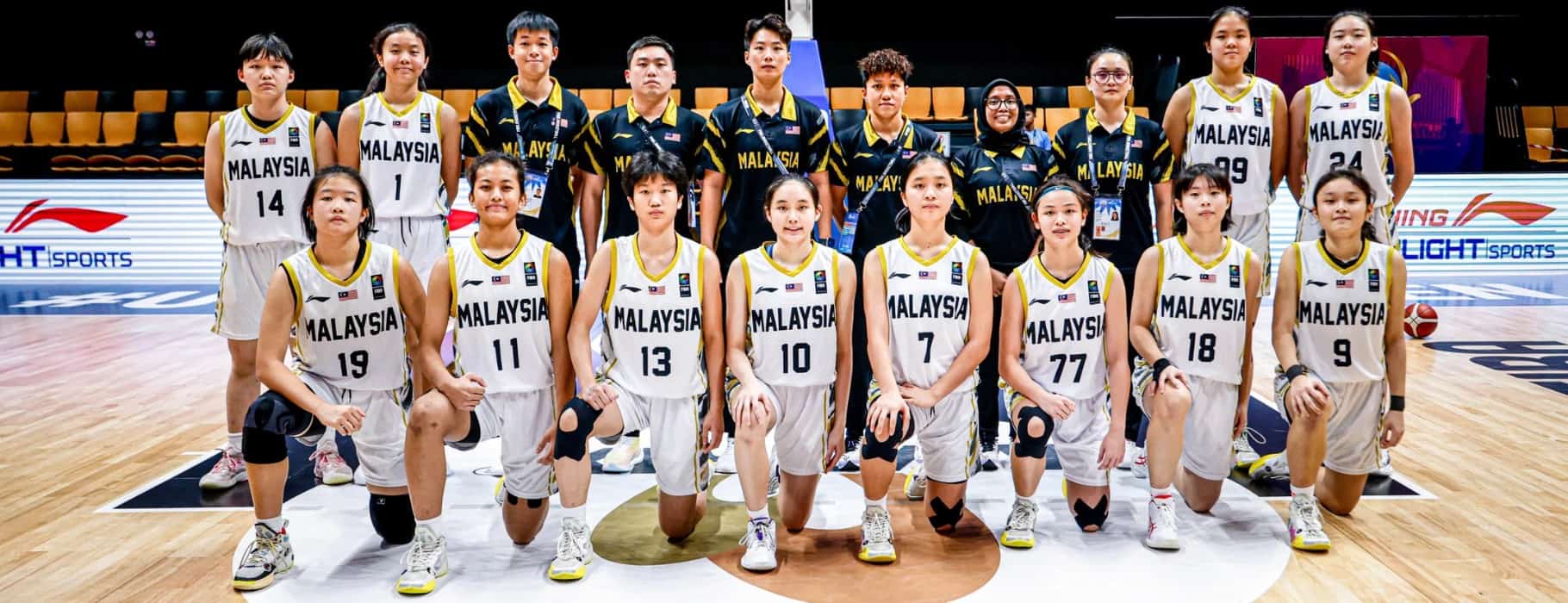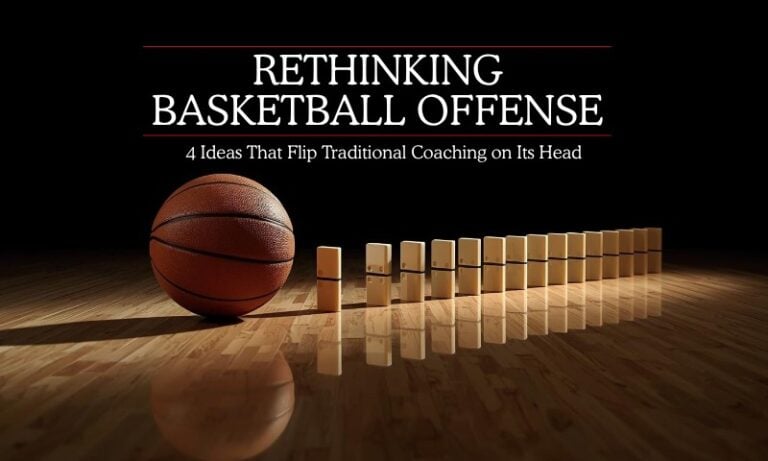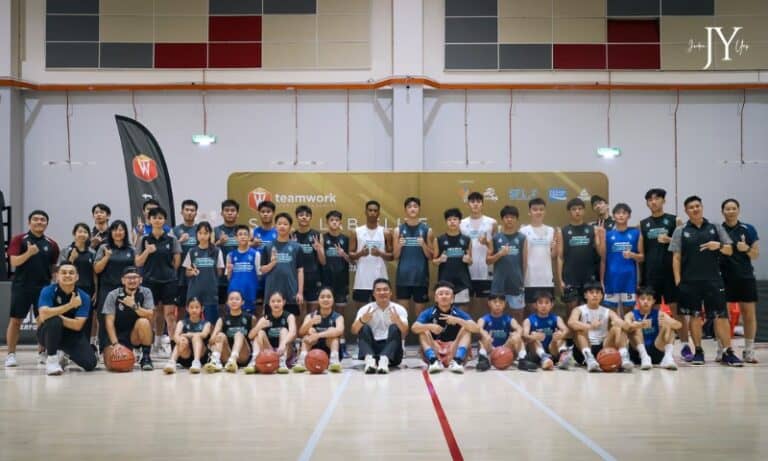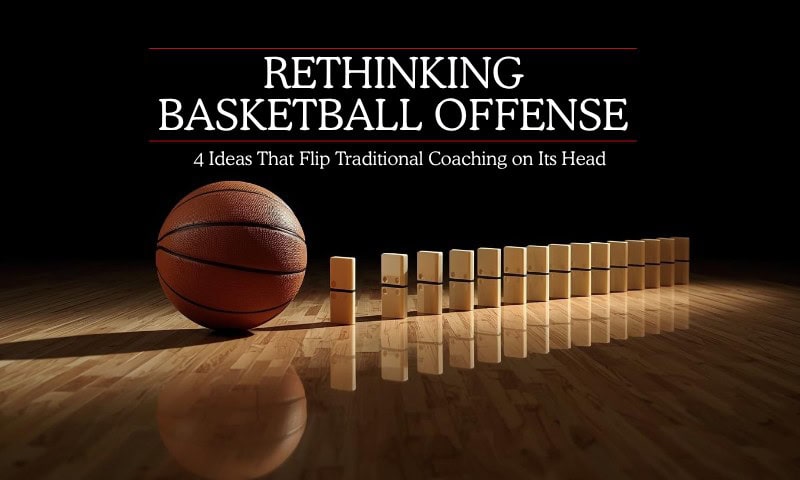
Nobody wants to lose 62–33.
Not the kids wearing Malaysia’s jersey. Not the coaches on the bench. Not the parents who travelled hours to watch their daughters fight on home soil. Everyone who steps onto that court carries pride, hope, and sacrifice. Nobody dreams of walking off defeated.
But when you see 38 turnovers in 40 minutes — almost one every minute — you realise they were set up to fail long before tip-off. The gap isn’t about effort. It’s about the systems, structures, and choices that shaped these players long before the referee blew the whistle.
On Wednesday (17 September) at the FIBA U16 Women’s Asia Cup (Division B), Malaysia fell to Iran in the playoff round, ending hopes of promotion to Division A. Weeks earlier, the boys’ U16 team had also been eliminated by the same opponent. Two defeats. Same gulf. Same lesson. Different gender, same outcome.
The truth is harder: this story has repeated for a long time. Each new generation of players inherits the same shortcomings. They prepare as best they can, but they walk into battles where the opponent’s foundation is stronger, deeper, and steadier.
Equal Investment
In a recent conversation, a friend suggested something simple but powerful: if we can pour resources into national teams, we should spend equally on grassroots. Without this balance, the gap between spending and results will only grow wider. You can build the tallest skyscraper in the city, but if the foundation is weak, it will never stand firm.
That means upgrading grassroots coaches and giving them exposure to modern methods and new ideas. At the end of the day, better coaches create better players. If our youngest talents never see beyond the same old drills, they’ll always be outmatched.
Our competitors are constantly improving, and if we don’t keep up, it will only be harder to close the gap later. Investment in grassroots is insurance for the future.
The Missing Roundtable
Another suggestion from a friend is honest dialogue. After every tournament, there should be a roundtable — a structured space where coaches discuss: what did our competitors do better than us? What must we improve to reach the next level?
This isn’t about assigning blame. It’s about pulling back the curtain and asking tough but necessary questions. What systems produce consistency? What training methods leave us behind? What choices allow others to surge ahead? Without collective reflection, mistakes stay hidden and growth never compounds.
If the organization won’t initiate it, then let’s do it externally. Clubs, academies, or private groups could host it. What matters is that the conversation happens. Because silence after every defeat only ensures the same cycle repeats.
Reports, Not Silence
We often say every defeat is a “learning experience.” But if all those lessons were written down, we’d probably have an encyclopedia by now.
The problem is, nobody compiles them — so every new cycle of coaches and players starts from scratch. What gets called “learning” often vanishes into thin air the moment the tournament ends.
That’s why reports matter. Imagine if every participating coach prepared a document: performance analysis, challenges faced, and concrete solutions. Not just critique, but constructive ideas. Shared openly, these reports could turn painful losses into a collective resource. Over time, this culture would mean each team begins not at square one, but on the shoulders of those who came before.
Japan offers a model here. After big tournaments like the Olympics or World Cup, their federation publishes a National Team Technical Report. It’s public — you can even download it from their website.
To be fair, I haven’t found similar reports for their youth teams. But that’s where Malaysia could innovate: produce reports at the youth level, so every U16 or U18 cycle leaves behind a record others can build on.
Imagine a library of reports stacked year after year, chronicling struggles, breakthroughs, and ideas. That would become our real playbook for progress.
From Critique to Blueprint
Malaysia’s basketball story doesn’t need more finger-pointing. It needs a culture of equal investment, reflection, and documentation.
Equal investment to strengthen grassroots. Roundtables to make learning collective. reports to ensure lessons aren’t lost. Each part reinforces the others. Money without dialogue becomes waste. Dialogue without records becomes noise. Records without follow-through gather dust. But when combined, they form a blueprint.
Defeat will always hurt. But if we turn it into knowledge, continuity, and action, then maybe — just maybe — we can stop calling every loss a “learning experience,” and finally start showing what we’ve learned. And once we show progress, the defeats of today can become the foundation of tomorrow’s victories.
This isn’t a quick fix. It won’t change everything in one cycle. But it offers a different path than resignation. Instead of waiting for miracles, we build a system where progress is inevitable.
If this story made you rethink how we grow the game, hit the subscribe button. I send one like this every Sunday.
— Jordan





